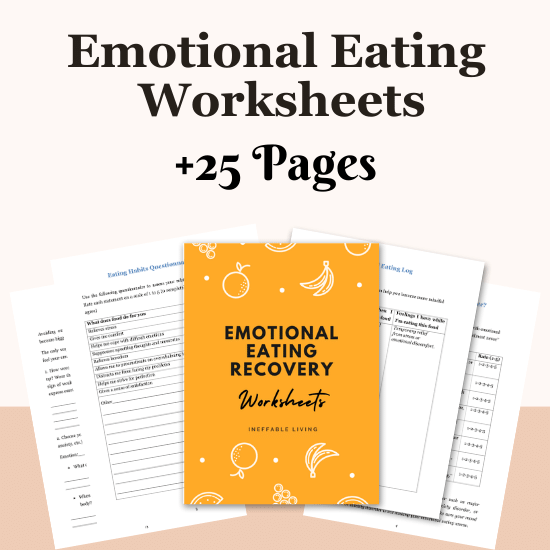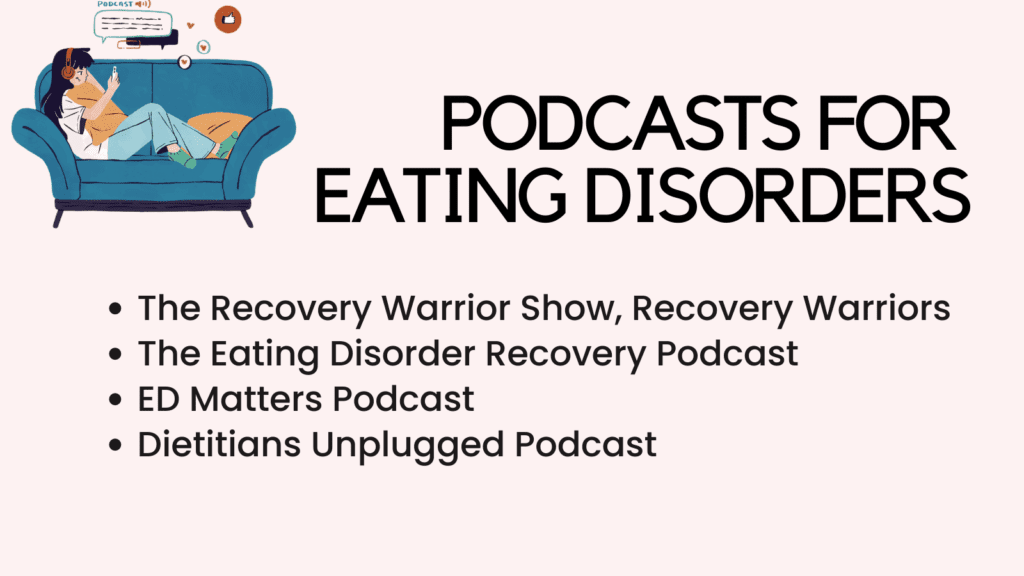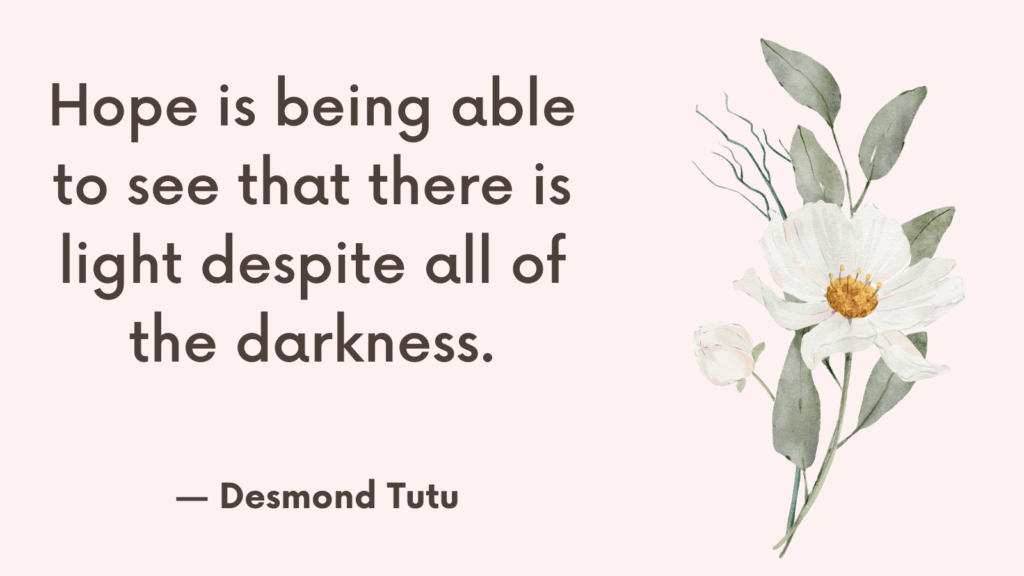Emotional eating is a common challenge many people face, especially when trying to improve their health or manage their weight.
Often, the initial approach to addressing this issue is dieting or restricting food intake.
However, research shows that dieting frequently leads to weight gain in the long run. (source)
This post explores the reasons behind emotional eating and offers strategies to replace it with emotion processing and intuitive eating, helping you develop a healthier relationship with food and your body.
The Pitfalls of Dieting
Dieting tends to put individuals at war with food and their bodies, creating a cycle of restriction and bingeing that often results in weight gain.
This cycle can be attributed to various factors, one of the most significant being that people often eat for reasons other than hunger.
Your body inherently knows how to regulate eating based on nutritional needs, using hunger and fullness cues.
However, emotional eating disrupts this natural regulation.
What Is Emotional Eating?
Emotional eating occurs when food is used to manage emotions rather than satisfy hunger.
The first step to overcoming emotional eating is to ask yourself, “Why am I eating this?”
Instead of focusing solely on what and how much you are eating, explore the underlying emotions driving your eating habits.
Here are some common emotional triggers for eating:
1. Boredom: When feeling bored or restless, you might seek exciting or flavorful foods to replace the lack of stimulation.
2. Sadness or Pain: You might turn to pleasurable foods to feel happy when experiencing sadness or pain.
3. Loneliness: Food can mimic the feelings of connection and comfort that come from social interactions.
4. Numbness: Eating can fill an emotional void or make you feel something when you feel numb or empty.
5. Fatigue: Eating sugary or carbohydrate-heavy snacks can provide a temporary energy boost, though this often leads to a crash later.
6. Anger: Crunchy, spicy, or intense foods might be used to express or suppress anger.
7. Grief: Comfort foods are often used to soothe feelings of grief.
Related: How To Break Emotional Eating? Top 8 Powerful Ways To Stop Comfort Eating
What is Intuitive Eating?
Intuitive eating is an approach that helps individuals let go of the diet mentality and develop a positive relationship with food, their bodies, and themselves.
It encourages rejecting diet culture and rigid external rules about “good” and “bad” foods.
Studies have shown that intuitive eating can help people recover from disordered eating and achieve a healthier Body Mass Index (BMI).
However, to successfully transition to intuitive eating, it’s crucial to address the emotional reasons behind eating.
Strategies to Replace Emotional Eating
To address emotional eating, it’s essential to replace it with healthier ways of processing emotions and adopt intuitive eating practices. Here are some strategies to help you achieve this:
1. Awareness and Reflection
The first step is to become aware of your eating habits and reflect on why you are eating.
When you find yourself reaching for food, pause and ask yourself what you are feeling.
Notice and name the emotions driving your desire to eat.
This simple act of mindfulness can often be enough to disrupt the automatic pattern of emotional eating.
2. Emotional Solutions for Emotional Problems
Instead of using food to manage emotions, find appropriate emotional solutions:
– Boredom: Engage in activities that excite or fulfill you, such as playing a sport, starting a new hobby, or volunteering.
– Loneliness: Reach out to a friend or join a social group to foster connections.
– Numbness: Engage in activities that bring joy and meaning, or practice mindfulness to reconnect with your feelings.
– Fatigue: Prioritize rest and ensure you are getting enough sleep. Consider a balanced diet that provides sustained energy.
– Anger: Find healthy ways to express anger, such as physical exercise, journaling, or talking to a trusted friend.
– Grief: Allow yourself to grieve and seek comfort from loved ones or support groups.
Related: Why Do I Feel Guilty After Eating? 7 Steps to Stop Food Guilt
3. Develop a Healthy Relationship with Food
Embrace intuitive eating by listening to your body’s hunger and fullness cues. Here are some principles to guide you:
– Reject the Diet Mentality: Let go of the idea that you need to follow strict diets or external rules about food.
– Honor Your Hunger: Eat when you are hungry and choose foods that satisfy you.
– Make Peace with Food: Allow yourself to eat all types of food without labeling them as “good” or “bad.”
– Respect Your Fullness: Listen to your body’s signals and stop eating when you feel satisfied.
– Discover the Satisfaction Factor: Choose foods that you enjoy and that make you feel good.
– Honor Your Feelings Without Using Food: Find ways to address your emotions that don’t involve eating.
Related: Why Am I Always Thinking About Food? Top 9 Reasons
Practical Steps to Implement Intuitive Eating
1. Mindful Eating: Practice eating mindfully by paying attention to the taste, texture, and aroma of your food. This can help you enjoy your meals more and recognize when you are full.
2. Plan Balanced Meals: Ensure your meals include a balance of proteins, fats, and carbohydrates to keep you satisfied and provide sustained energy.
3. Stay Hydrated: Sometimes, thirst can be mistaken for hunger. Drink plenty of water throughout the day.
4. Regular Physical Activity: Incorporate regular exercise into your routine. Physical activity can improve your mood and reduce the likelihood of emotional eating.
Related: Best 10 Binge Eating Books

Conclusion
Replacing emotional eating with emotion processing and intuitive eating is a journey that requires awareness, reflection, and practice.
By understanding the emotional triggers behind your eating habits and finding healthier ways to address those emotions, you can develop a positive relationship with food and your body.
Embrace intuitive eating principles to honor your body’s natural hunger and fullness cues, and seek support when needed to navigate this journey.
By making these changes, you will not only improve your physical health but also enhance your emotional well-being.
Remember, it’s okay to eat for reasons other than hunger occasionally, but being mindful and intentional about your eating habits can help you achieve a healthier, more balanced life.



